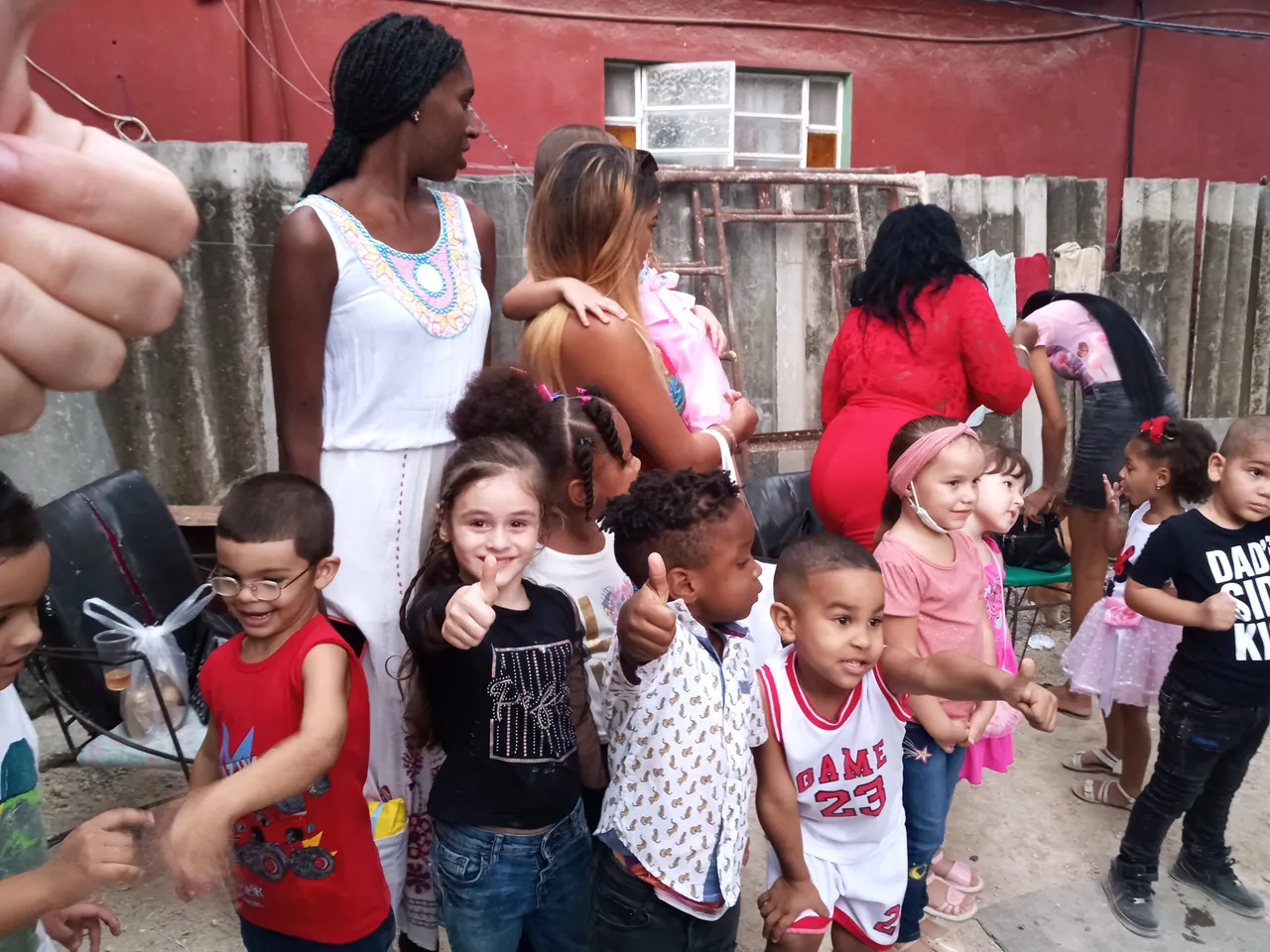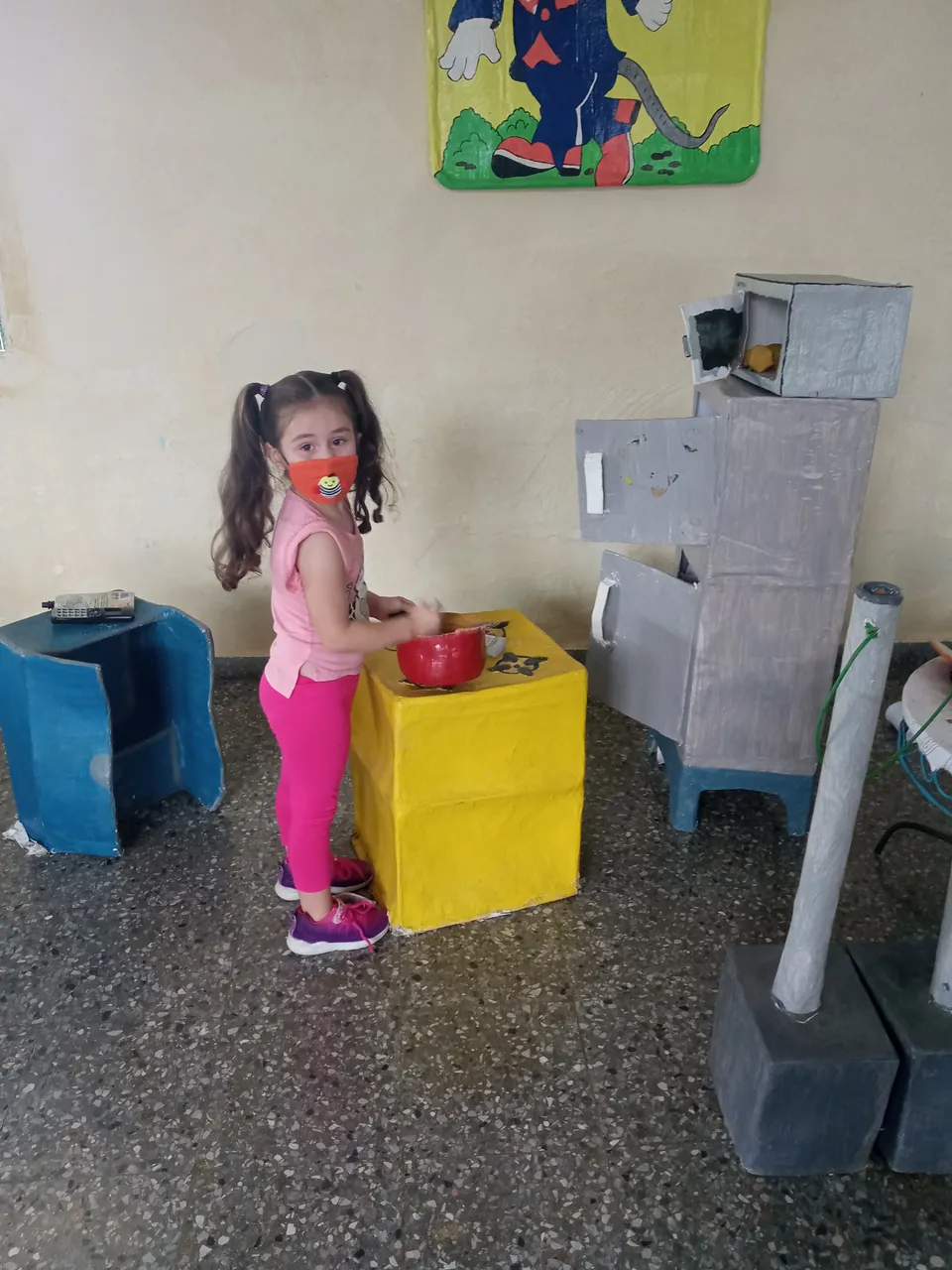Buenas a toda la comunidad, esta es mi primera publicación aquí, así que toda ayuda y críticas son válidas. Hace unos días publiqué mi presentación en Hive y desde entonces he estado interactuando con el ecosistema para ir conociendo un poco de lo que se trata y como novata que soy voy a los de “como crear contenido” “sobre qué voy a escribir” . En resumen, casi todos repiten la misma idea de diferentes maneras, se centran en escribir sobre lo que te gusta porque se supone que sea lo que más conozcas, por lo que puedas desarrollar un tema y lo veo superbién, pero eso me dejo pensando🤔 en los temas que no nos gustan
Good to all the community, this is my first post here, so all help and criticism are valid. A few days ago I posted my presentation on Hive and since then I've been interacting with the ecosystem to get to know a bit of what it's about and as a newbie I'm going to those of "how to create content" "what I'm going to write about" . In short, almost everyone repeats the same idea in different ways, they focus on writing about what you like because it's supposed to be what you know the most, so you can develop a topic and I see it super well, but that leaves me thinking🤔 about the topics we don't like>
Emily jugando en su círculo infantil
Casualmente, hoy tuve una reunión de padres en el círculo infantil de mi hija y hubo una parte que la directora dijo “en nuestra institución hay 47 niños que vienen de padres divorciados, por lo tanto, son niños que no viven de una forma normal” Eso me molesto😤 y me di cuenta de que tenía suficientes argumentos para debatir él ¿por qué no estoy de acuerdo con eso? De ahí viene que uno tiene tantos argumentos en los temas que le gusta como en lo que no le gusta.
Coincidentally, today I had a parents meeting at my daughter's children's circle and there was a part that the director said "in our institution there are 47 children that come from divorced parents, therefore, they are children that don't live in a normal way" That bothered me😤 and I realized that I had enough arguments to debate him why I don't agree with that? That's where it comes from that you have as many arguments on the topics you like as you do on what you don't like.>

En mi búsqueda de información sobre ¿Qué es una familia normal?, encontré que existen varios tipos de familia. Pueden consistir en un solo progenitor, dos padres de igual sexos, adoptivos o sin los dos padres presentes. También existen familias extendidas, grandes y multigeneracionales con numerosos parientes relacionados entre sí. En términos generales, una “familia normal” se refiere a cualquier configuración familiar que sea amorosa y proporcione seguridad emocional, apoyo económico y guía moral a sus miembros.
In my search for information on What is a normal family, I found that there are several types of families. They can consist of a single parent, two parents of the same sex, adoptive or without both parents present. There are also extended, large, multi-generational families with numerous related relatives. Generally speaking, a "normal family" refers to any family configuration that is loving and provides emotional security, financial support and moral guidance to its members.>
Al buscar la respuesta de mi pregunta llegué a la conclusión que el error está en no tratar la diversidad como un tema normal. Ocurre desde nuestras casas, familia, escuela, sociedad y si provienes de una familia normal puede que a tu niñ@ no le afecte, pero si viene de una familia no convencional hacemos que ese niño se sienta inferior o diferente del resto.
In searching for the answer to my question I came to the conclusion that the mistake is in not treating diversity as a normal issue. It happens in our homes, family, school, society and if you come from a normal family it may not affect your child, but if he/she comes from a non-conventional family we make that child feel inferior or different from the rest. >
Según el Instituto Nacional de Estadística (INE) ha publicado la estadística de nulidades, separaciones y divorcios correspondientes a 2021, que indica que ese año se produjeron 86.851 divorcios (el 95,9 % del total), 3.674 separaciones (4,1 %) y 57 nulidades (0,1 %).
El número de divorcios aumentó un 12,5 % respecto al año anterior, el de separaciones un 32,4 % y el de nulidades un 42,5 % mientras que la tasa de rupturas se sitúa en 1,9 por cada mil habitantes.
En 2021 hubo 1.672 divorcios entre personas del mismo sexo (el 1,9 % del total). De ellos, 900 fueron de hombres y 772 de mujeres. Además, hubo 68 separaciones (1,9 % del total).
According to the National Institute of Statistics (INE) has published the statistics of annulments, separations and divorces corresponding to 2021, which indicates that that year there were 86,851 divorces (95.9% of the total), 3,674 separations (4.1%) and 57 annulments (0.1%).
The number of divorces increased by 12.5 % over the previous year, that of separations by 32.4 % and that of annulments by 42.5 % while the rate of breakups stands at 1.9 per 1,000 inhabitants.
In 2021 there were 1,672 same-sex divorces (1.9 % of the total). Of these, 900 were by men and 772 by women. In addition, there were 68 separations (1.9 % of the total).
Este tema es muy largo y tiene muchos argumentos y puntos de vista diferentes, pero entiendo y soy de las que apoyo la diversidad y no porque mi hija no tenga una familia tradicional. Es que entiendo que la idea de lo que constituye una familia “normal” está cambiando. La estructura familiar nuclear tradicional ya no es la única aceptada y reconocida en la sociedad. Con estructuras familiares cada vez más diversas, es importante explorar diferentes ideas y perspectivas sobre lo que constituye una familia normal
This topic is very long and has many different arguments and points of view, but I understand and I am one of those who support diversity and not because my daughter does not have a traditional family. It is that I understand that the idea of what constitutes a "normal" family is changing. The traditional nuclear family structure is no longer the only one accepted and recognized in society. With family structures becoming more and more diverse, it is important to explore different ideas and perspectives on what constitutes a normal family>
Criar a los hijos en una familia no tradicional puede ser tan difícil como gratificante. Requiere que los padres piensen con originalidad y encuentren soluciones creativas a los retos de la crianza. Por otra parte, también brinda a los padres la oportunidad de enseñar a sus hijos valores como el respeto a la diversidad, la aceptación de los demás y la apertura de mente.
Raising children in a non-traditional family can be both challenging and rewarding. It requires parents to think outside the box and find creative solutions to parenting challenges. On the other hand, it also gives parents the opportunity to teach their children values such as respect for diversity, acceptance of others and open-mindedness.

